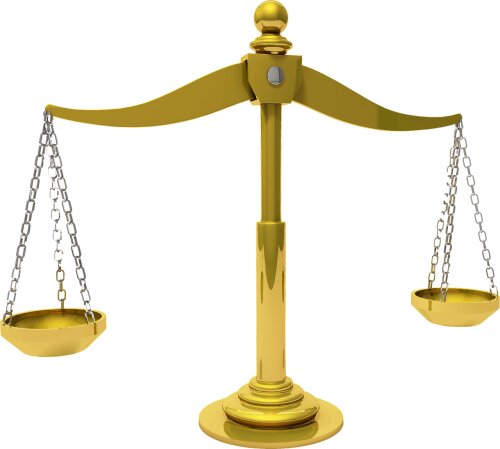Best Drugs & Medical Devices Lawyers in Mthatha
Share your needs with us, get contacted by law firms.
Free. Takes 2 min.
List of the best lawyers in Mthatha, South Africa
About Drugs & Medical Devices Law in Mthatha, South Africa
Mthatha, a town in the Eastern Cape province of South Africa, is subject to national regulations regarding the use and distribution of drugs and medical devices. The South African Health Products Regulatory Authority (SAHPRA) oversees the approval and monitoring of pharmaceuticals and medical devices to ensure safety, efficacy, and quality. The Drug Control Act and the Medical Device Regulations outline the legal framework which governs their sale, distribution, and usage. With modern healthcare systems and complex product supply chains, consumers and professionals need to navigate these regulations carefully.
Why You May Need a Lawyer
There are numerous scenarios where legal assistance might be essential in the field of drugs and medical devices. If you have been adversely affected by a medication or device, or if you are a healthcare professional facing regulatory compliance issues, legal counsel can be crucial. Additionally, manufacturers and distributors may require legal advice to navigate government approvals and supply chain agreements. Lawyers specializing in this field can help resolve liability disputes, represent you in class-action lawsuits, or defend against regulatory enforcement actions.
Local Laws Overview
In Mthatha, and broadly across South Africa, the legal landscape surrounding drugs and medical devices is governed by stringent regulations. The Medicines and Related Substances Act mandates that all medications and medical devices entering the market must be authenticated and authorized by SAHPRA. Non-compliance can lead to severe penalties including fines and imprisonment. Local laws also stress the importance of truthful advertising and prohibit misleading claims regarding the efficacy or benefits of drugs and devices.
Frequently Asked Questions
What is considered a medical device in South Africa?
A medical device is any instrument, apparatus, implement, machine, appliance, implant, reagent for in vitro use, software, material, or other similar or related articles intended for use in the diagnosis, prevention, monitoring, treatment, or alleviation of disease.
Do all drugs need SAHPRA approval before they can be sold?
Yes, all drugs intended for sale in South Africa must be registered with and approved by SAHPRA to ensure they meet safety, efficacy, and quality standards.
What should I do if I experience side effects from a medication?
If you experience adverse effects, it is crucial to report this to your healthcare provider immediately. You can also report the side effects directly to the SAHPRA to ensure safety monitoring.
How can businesses ensure compliance with local drug laws?
Businesses should engage with legal counsel familiar with regulatory compliance and ensure that all products are properly registered, their advertisements are not misleading, and appropriate risk assessments are conducted.
Can I file a lawsuit if harmed by a defective medical device?
Yes, if a medical device is defective and causes harm, you may have legal grounds to pursue a product liability lawsuit against the manufacturer or distributor.
Are there specific legal requirements for importing medical devices?
Yes, imported medical devices must comply with SAHPRA registration and South African customs laws, ensuring they meet all regulatory standards before distribution.
What legal recourse is available if a drug is misrepresented in its marketing?
If a drug’s marketing is misleading, consumers may pursue claims against the company for false advertising or breaches of the Consumer Protection Act.
How are pharmaceutical disputes typically resolved in South Africa?
Disputes are often resolved through litigation or mediation, depending on the complexity and nature of the case. Alternative dispute resolution mechanisms are also encouraged.
What are the potential penalties for non-compliance with drug regulations?
Penalties can vary but often include substantial fines, suspension or loss of business licenses, and, in severe cases, criminal charges resulting in imprisonment.
Is there a limitation period for filing drug-related lawsuits?
There is generally a three-year prescription period for filing most civil claims in South Africa, including those related to drugs; however, specific circumstances might alter this period.
Additional Resources
For further assistance, individuals and businesses can consult SAHPRA for regulatory guidelines or the Consumer Goods Council of South Africa for industry best practices. Local healthcare practitioners and legal advisors specializing in health law can also be invaluable resources.
Next Steps
If you require legal assistance in the field of drugs and medical devices, it is advisable to consult a lawyer who specializes in healthcare regulations. Gathering all relevant documentation and understanding your rights can help you prepare for initial consultations. It may also be beneficial to keep a record of all communications with healthcare providers and regulatory bodies as part of your legal preparations.
Lawzana helps you find the best lawyers and law firms in Mthatha through a curated and pre-screened list of qualified legal professionals. Our platform offers rankings and detailed profiles of attorneys and law firms, allowing you to compare based on practice areas, including Drugs & Medical Devices, experience, and client feedback.
Each profile includes a description of the firm's areas of practice, client reviews, team members and partners, year of establishment, spoken languages, office locations, contact information, social media presence, and any published articles or resources. Most firms on our platform speak English and are experienced in both local and international legal matters.
Get a quote from top-rated law firms in Mthatha, South Africa — quickly, securely, and without unnecessary hassle.
Disclaimer:
The information provided on this page is for general informational purposes only and does not constitute legal advice. While we strive to ensure the accuracy and relevance of the content, legal information may change over time, and interpretations of the law can vary. You should always consult with a qualified legal professional for advice specific to your situation.
We disclaim all liability for actions taken or not taken based on the content of this page. If you believe any information is incorrect or outdated, please contact us, and we will review and update it where appropriate.








